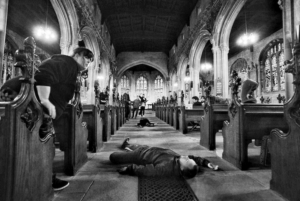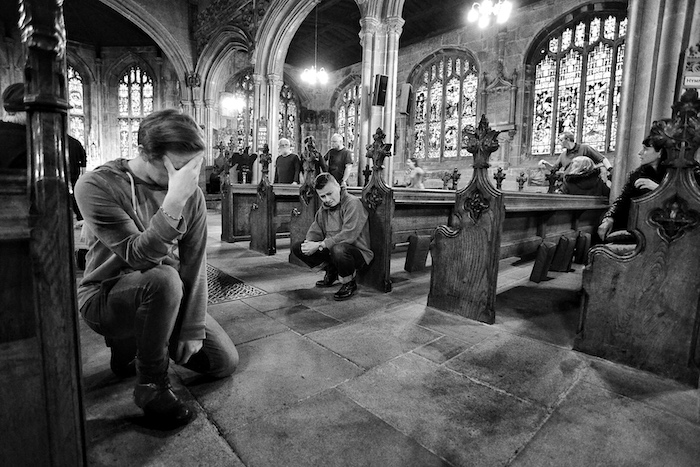Guest Blog: Playwright Bethan Marlow On MOLD RIOTS at Theatr Clwyd

"Are you sure you want to do this play???"
That was my first reaction after I'd been invited to write Mold Riots and had done some reading up on it. I'd never heard of the mining riot before, but when I found out what had happened, and more importantly why it had happened, there were so many themes that still rung true to Mold and North Wales today that I was both excited and scared of opening that massive, sensitive and political door.
Immigration, poverty, ignoring the working class, dismissing the Welsh language, the English coming in working as superiors and managers of the locals and refusing to learn Welsh...
"Are you sure you want to do this play???"
"Definitely."
And I'm so glad they said that, because I have been on an enormous journey working on this. Katie [Posner, the director] has really encouraged me to dig deep and write the play that I want to write and not just a retelling of history.
It took several Skype meetings together until I finally admitted (for the first time in a place of work) that my self-confidence is much higher when speaking Welsh. And that when I'm amongst English colleagues, I always feel that I'm not good enough - that they have far better intelligence, education and talent than I do.
I was so embarrassed to admit this, but as I've been working on this play I realise that generations upon generations of my family have been forced to believe this - and by now, we accept it as fact! That's the power of oppression; that's what keeps us in our place. But sometimes, like in Mold in 1869, we are left with no choice but to stand up and say "Enough is enough".

I've written many bilingual plays - I facilitate bilingual workshops, but I never translate. As someone who understands both languages, I can't think of anything more boring than watching a play where all the lines are repeated! Mold Riots is a bilingual play: some parts are in English, others in Welsh, other scenes have a bit of both. My hope is that I've written it in a way where everyone will always know what's going on. We'll all go on a journey, together, following in the colliers' footsteps to try and understand what happened and why.
We will interact with characters who have difficulty speaking English, children that want to go on holiday but families don't have the money or the time off work to go, mothers trying to feed their families on very low wages, and workers who have moved here, desperately wanting to be accepted. I could be describing many communities across the UK today, don't you think?
We'll get to know the colliers, the Lancis, the Townies, and a girl who's just arrived from Liverpool. John Young is in the play, of course, but I have no intention of exploring and justifying his point of view - someone else can write that play.
Mold Riots is a celebration of the working class, whether it's 1869 or 2019. We'll be raising the voices that are too often stamped into the 'spoil' until they turn silent. This play would not have been possible without the incredible participation of the community of Mold. It is nothing but bone without them; they are the guts, heart and spirit of this play, and I'm extremely grateful to have had the chance to collaborate with them.
Mold Riots at Theatr Clwyd 21-26 October
Comments
Videos

